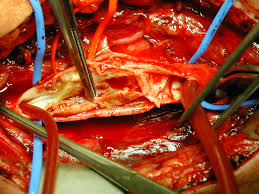Carotid artery disease often develops silently, without any noticeable symptoms in its early stages. However, as the condition worsens, it can lead to warning signs of a potential stroke. These may include sudden weakness or numbness on one side of the body, trouble speaking or understanding language, and temporary vision loss in one eye.
The treatment approach for carotid artery disease is tailored to the severity of the arterial blockage and the patient’s overall health. Early stages may be managed with conservative measures, such as lifestyle modifications and medications to control risk factors. Medications might include blood thinners to prevent clots or cholesterol-lowering drugs to reduce plaque build-up.
For more advanced cases — particularly if there is a significant blockage or a history of stroke — Dr Al-Najjar may recommend a surgical intervention. This could involve carotid endarterectomy, a procedure to surgically remove the plaque obstructing the carotid arteries, or in some cases, carotid artery stenting, where a small mesh tube is inserted to keep the artery open. These procedures are aimed at restoring proper blood flow to the brain and preventing future strokes.
Ultimately, the best course of treatment will depend on the specific circumstances, with the goal of reducing the risk of stroke and improving long-term vascular health. Dr Al-Najjar works closely with each patient to determine the most effective plan based on their unique condition.

